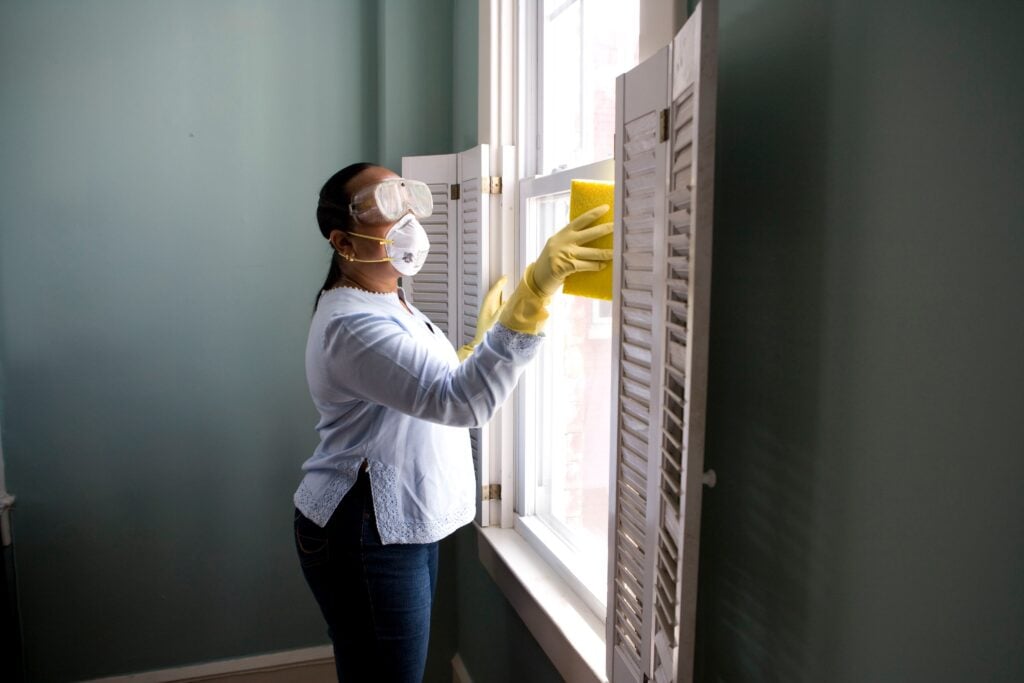Can Council Houses Be Passed Down?
While each council has an individual allocation scheme to follow in terms of assigning priority to council housing applicants, those claimants who fulfil any of the following criteria are expected to be higher on priority:
- if someone is legally homeless
- they have to move homes due to a serious medical condition or disability
- due to hardship-anything from medical treatment or potential danger to changing jobs
- currently residing in an over-crowded house or under poor living conditions
However, as per a recent news report, foster parents and key workers will get higher priority for council housing in some areas. Foster parents and adoptive parents are being assigned Band 1 to extend the maximum benefit to their children. In recognition of their work during the pandemic, key workers have been assigned a Band 2 (The total number of bands is 4 with Band 1 being the highest on the priority list).
Can Council Houses Be Passed Down?
Yes, council houses can be passed down but this can only be applied once per the tenancy agreement. For instance, if the tenancy has passed down from one person to another, the successor will not be able to pass it down again. The only exception to this rule may be the permission for “second succession” or “discretionary succession” granted by local council authorities in their council tenancy agreement with renters.
In addition to this, the type of tenancy also plays an important role in deciding on the succession of a renter. Let’s analyse the different situations that apply in the case of succession of tenancy:
- The succession of a council house in case of joint tenancy: A joint succession agreement includes two (or more) tenants as the renters who share the responsibility of maintaining responsibilities towards the property. In this case, if one tenant dies, the tenancy is automatically passed on to the surviving tenant. However, it is essential for the successor to maintain the council property as their main residence.
- The succession of a council house in case of sole tenancy: In most cases, council house tenancy can be passed down to the surviving partner/spouse/civil or unmarried partner of a deceased tenant through “succession rights”. However, it is essential for the partner to be living in the council house at the time of the demise of their partner in whose name the tenancy agreement is. In some cases, it may also be passed down to close family members if the deceased is your parent or grandparent, aunt or uncle, brother or sister, child, grandchild, niece or nephew.
As a general rule, in the case of succession rights, the rights of surviving partners override those of close family members.
Through this article, we will explore the following topics to learn more about council housing:
- Can Council House Be Passed Down Without Succession Rights?
- What Happens When Council House Tenancy Cannot Be Passed Down?
- Can Council Houses Be Bought?
- Can Someone Live With Me In My Council House?
- Can You Swap Council Houses?
- What Are The Different Types Of Tenancies For Council Housing?
Can Council House Be Passed Down Without Succession Rights?
There are times when someone without succession rights would like to stay in a council house vacated either by the tenant’s choice to move out or their death. In such a situation, the interested party may file an application with the local council or the housing association landlord.
Their application has a greater chance of acceptance if the previous tenant was under a secure tenancy agreement and if the current applicant:
- had been sharing the council house with the previous tenant for at least one year
- had been taking care of the previous tenant
- had taken the responsibility of the previous tenant’s children (if any)
If the applicant fulfils any of the above criteria, the council may consider allowing them to continue with living in the same property under a new tenancy agreement or find more suitable council housing premises for them.
What Happens When Council House Tenancy Cannot Be Passed Down?
If the council decides that you do not qualify to be a successor for council house tenancy, they will give you a 4-week notice to vacate the premises. However, if tenants fail to meet this deadline, council authorities can get a court order issued for the vacation of premises. Unless the tenant shows evidence of their right to success, the local council will not be able to stop or delay the eviction process.
If a tenant is afraid of being homeless as a result of this eviction they can get help from the council.
In some cases, you may be asked to evict the premises as the current council house is in excess of your needs and the council has been able to find a more suitable property to meet your requirements.
If you think that the council has made a mistake by asking you to vacate the premises and not approving your succession to tenancy, contact your local citizens advice bureau.
Can Council Houses Be Bought?
Yes, council houses can be bought under the Right to Buy by local council tenants scheme but there are certain basic conditions to be met. These include the following:
- The council house is the applicant’s main home
- The property is self-contained
- The applicant is a secure tenant
- The applicant has had a public sector landlord for at least five years
There is also an option of buying your council house under a joint application. In this case, it is essential for the applicant to either file their council house application with someone as their joint owner and be willing to share their responsibilities as a house owner or have up to three family members (who have lived with them for at least 12 months) willing to share ownership rights.
Under “Preserved Right To Buy” you can purchase a council house that you lived in but the council sold it to a housing association landlord.
In case, you are a housing association tenant, you can apply for the purchase of your council house by filling the Right to Acquire Application Form To be eligible, your must spend at least three years as a council house tenant and fulfil all the eligibility criteria that apply to local council tenants. However, you should not apply under the Right To Buy or Preserved Right To Buy schemes.
Voluntary Right To Buy allows you to purchase a council house that you may not have lived in.
Can Someone Live With Me In My Council House?
Yes, someone can live with you in your council house as they are generally intended for eligible candidates and their families; whether they are dependants or non-dependants. However, if you intend to ask someone to live with you as a carer or a joint tenant, or you intend to sublet your council house, you must consult your tenancy agreement and discuss with your landlord/local council office prior to making any commitments.
If you are under a Secure Tenancy or Fixed Tenancy agreement with the housing authorities, you may sub-let rooms in your council house; however, subletting of the entire council house is not allowed. You will find a clause in your tenancy agreement that confirms the same. Therefore, it is advisable not to add someone to your council house with the intention of subletting the premises.
Can You Swap Council Houses?
Yes, you can swap your council house; however, the amount of time it takes will depend upon finding another property and the terms on which you are leaving the previous council house.
When a tenant is looking for another council housing tenant who is also intending to move, it is called “mutual exchange” as the decision to swap council houses depends upon a mutual agreement between both parties involved. You can either look for a swapping partner through your local council or through a mutual exchange website.
It must be kept in mind that you are required to first inform your local council or social housing landlord about your decision to move and then register yourself through council/housing association/private websites such as HomeSwapper or Home & Property Markets | House Buying & Improvements | Property Market & Estate Agents to search for your future property
Once you and your landlord/council are in agreement, you can register yourself on the council’s website and list your council house as available for mutual exchange. You can easily find a swapping partner through the same website (if you haven’t already found one before making the decision to swap).
Your tenancy type and your eligibility for priority housing will play a very important role in the amount of time that it will take to find another council house to swap with.
What Are The Different Types Of Tenancies For Council Housing?
A tenancy agreement serves as a legal agreement bound by terms and conditions that the undersigning parties agree to while a living space is rented out. Tenancy agreements for council housing may be classified as below:
- Introductory Tenancy: This is considered to be a 12 month trial period for tenants during which their rights to exchange property or make modifications to it are limited.
- Secure Tenancy: This form of tenancy secures your occupancy in the council house for life; unless you break any tenancy rules stated in the agreement. In this case, you may sub-let rooms in the property but not the entire premises.
- Flexible Tenancy: This type of tenancy is usually for a fixed term of 2 to 5 years; at the end of which the council may decide to offer you a renewed contract on similar terms, offer a secure tenancy or not renew at any terms at all.
- Joint Tenancy: Under this contract, you and the joint tenant both become liable for rent payments and become eligible for all the privileges under secure tenancy jointly.
Conclusion:
Candidates are advised to share as many relevant details as possible in their application and also include any supporting evidence to back up their claims. This may include medical reports or doctor’s notes, in case the application is being raised on medical grounds.
Details of the following may be required:
- income and/or benefits
- employment history
- long-term medical conditions or disabilities
- savings
- assets in possession such as automobile
- visas or immigration documents (if the applicant is not from the UK)
FAQs: Can Council Houses Be Passed Down?
How many times can a house be passed down?
Council houses can be passed down but this can only be applied once per the tenancy agreement. For instance, if the tenancy has passed down from one person to another, the successor will not be able to pass it down again. The only exception to this rule may be the permission for “second succession” or “discretionary succession” granted by local council authorities in their council tenancy agreement with renters.
How long does it take to empty a council house after death?
The council usually provides a notice period of 4 weeks for family members to empty a council house after the death of the occupant. However, if they need more time, an application of request can be shared with local authorities.
What happens when someone dies in a council house?
If someone dies in a council house, the joint tenant, spouse or partner will take over the tenancy agreement by virtue of succession rights. However, if there are no successors, family members or relatives may be asked by local authorities to empty the council house of the occupant’s belongings under a notice period of 4 weeks.
Will I lose my council house if I get married?
No, you will not lose your council house if you get married. However, it is best to inform the local authorities of a change in your circumstances.
Can you live in a council house and own another property?
As a council housing tenant, you are advised not to purchase any other property; whether under sole or joint ownership.
References:
Can you inherit a council tenancy? – Shelter England
Staying in your council home when someone dies
Succession rights – Shelter Cymru
Council housing: Buy your council home – GOV.UK
Right to Buy: buying your council home – GOV.UK
Right to Acquire: buying your housing association home – GOV.UK
How house buyers can get a £110,000 discount by buying their home off the council – Mirror Online
Can I Afford It: Right to Buy calculator
Repairs and maintenance in your council house
Get help with decorating your council home
How to go about a council house exchange – OurProperty.co.uk



